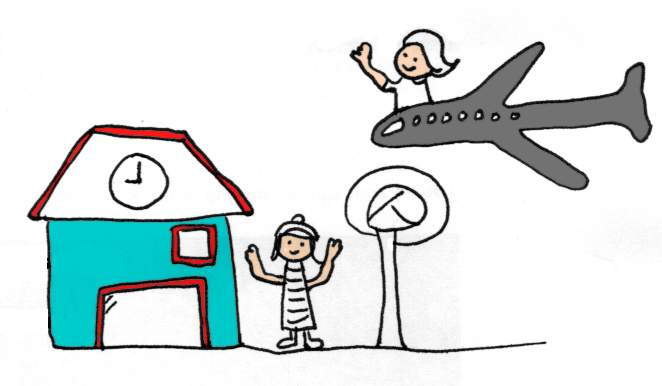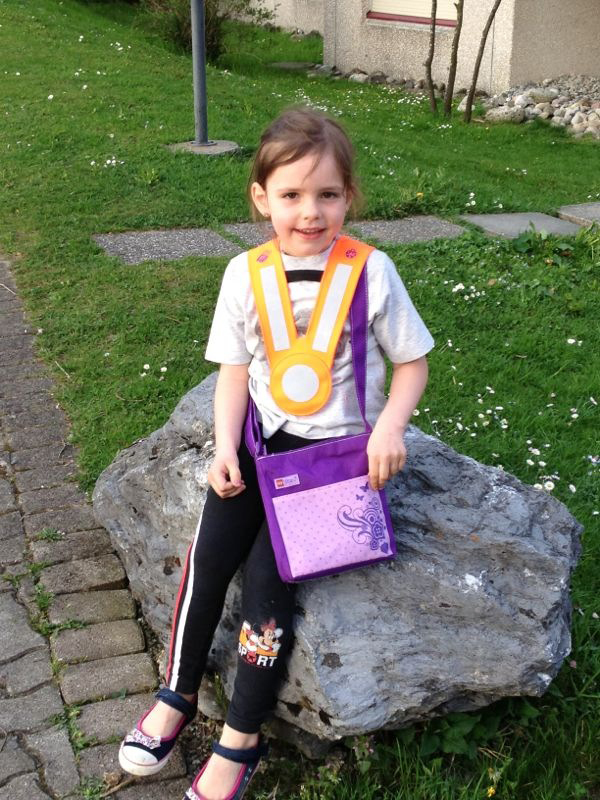A New Start
Family strategies: a new school in a new country
Parents who move to Switzerland have to channel their drive, ambition and talent into working abroad and establishing a home for the children. We want our children to cope well with change, to learn how to overcome setbacks, and to feel positive about our decisions. But it is not so easy when you are living with a downturn in your children’s behaviour, and they seem unhappy and tired all the time! This venture requires resourcefulness and presents unpredictable emotional and practical challenges both during the move and for months or even years afterward.
A new society, culture, language, house and routine are exciting at first, but creating a community around your family requires longer-term endurance and perseverance. The day-to-day demands of containing your kids’ anxieties, helping them adapt and encouraging them to explore can become a drain on your energy. If you can plan ahead for schooling, the painful aspects of the transition can be eased. And if you find a school community where you will make contacts and possibly friends, your new start might be transformed from a baptism by fire into a rewarding, positive experience.
Steps in a school change
Changing school systems can be managed with careful thought and timing. The least traumatic is evidently one where the differences can be prepared for and handled well. This is why visiting schools in advance is essential, or at least speaking to your child’s future teacher on the telephone to ask questions and share information about your child. Reflect on what your child really enjoys at the current school and how you can make links and comparisons to describe the new one.
Changing to a different learning methodology is a big adjustment. If you are tempted by an alternative school that does not follow a standard state or international curriculum, be sure to understand exactly how the lessons are taught before committing your child to adapting to a new style of learning in addition to the new language and/or culture.
If the change is from one large school environment to another, or to a school you feel is similar to one you went to yourself, the routines and culture may be familiar enough for your child to adapt without too many negative effects. However, you need to make a reality check after they start to define your level of comfort with your school choice. Depending on your child’s age, discussing the teachers, curriculum and organisation of a school helps parents to make more informed choices in the longer term.
Predictable differences
If you understand what is different from the last school, your child’s new experiences can be processed and filtered through your family discussions, and this will help him or her to adapt. Coming from abroad makes it hard to attend an event or an Open Day at the new school, but the Internet makes virtual visiting possible. Do not feel inhibited about asking difficult questions of each school even in your role as a respectful visitor. You need to have the same confidence in a school for your child as you would at home: how they will honour your trust in keeping children safe, reaching high standards and not discriminating against children from minority cultures, for example.
Many parents want their children to learn a new language while in Switzerland, but you need to be disciplined with yourselves to learn that language too; otherwise, your child may feel overwhelmed by having to step up to meet the challenge you have presented them with. The European Framework for Languages can help you to be realistic about the number of years you need to allow to learn a new language. The level you aim for should match your aspirations for the future, so if you are keen that your children speak a local language but not use it at work or university, there is no point spending years perfecting a written foreign language. In German-speaking Switzerland this is complicated by children having to learn the oral dialect as well as written German in which, to do well, they have to excel. If this is your aim, your whole family should throw themselves into this living abroad project with gusto and practice German every day!
Careful timing
Natural transitions in the school year or to the next phase of school are a good way to help children take change in their stride. Otherwise, they miss out on the adjustments that come naturally in a school community from being one of a group, all living the same daily reality. Class conversations and ritualistic cultural activities (such as building up to an end-of-term play) help children individually to build up to beginnings and wind down to endings.
Thinking ahead: build in a buffer
If you are concerned that you are too ambitious for your children, try to build some extra time into their progress through the first years of school. We know from research that changing schools or school systems can impact the achievement of children for about six months, so if you can help them to get ahead at some point, they have a little time to “play” with and might suffer less from having to change schools later. A quality preschool will help younger children prepare for primary school. Small class sizes can build in an achievement “cushion” for learning in larger groups later.
However, do not assume that it is good for children to get ahead by being the youngest in the class. Teachers see children grow and become more confident when they become older than the others in their familiar group.
Education is not an experiment
Finally, it is wise not to experiment too wildly with your children’s schooling. Sometimes living abroad can feel like one big experiment with unknowable outcomes, and it might be tempting not to try to foresee those outcomes – to classify school choice as something unpredictable in life. But it is so hard to live with unhappy children, and I believe that education is so important to children’s futures that it is worth it to keep trying to climb the mountain when you have already put much effort into getting halfway. Every minute of your research into the best combination of factors at your child’s potential new school is a valuable investment for their future.
Top family strategies for moving to a school in Switzerland
1. Avoid mid-term changes and if possible mid-school-year changes if your children have already started school.
2. Choose a school where you feel you can make a commitment for more than one school year. List-makers, define your essential and desirable criteria for the new school before you start looking! Take into account your child’s current learning style and the system they are coming from.
3. Ensure you can communicate with a key teacher or childcare manager well and aim to learn the school’s main language within two years yourself.
4. Look ahead to your child’s next phase of school and check that his or her options will be enhanced by the change, rather than reduced.
5. Don’t ignore what you would look for in a school in a more familiar culture, such as class work on display, good management and leadership, transparent accounting (if the school is private), and evidence of pupils’ achievements.
By Monica Shah
Monica is an early childhood specialist and founder of Children First Association in Zürich, a non-profit association for international families living abroad with young children.
Illustration by Ivy Hieber-Kwok
Ivy illustrated for Mothering Matters even “way back” in the print days.
Photo by Lara Friedrich
Lara is our youngest team member who has just started university this year.





